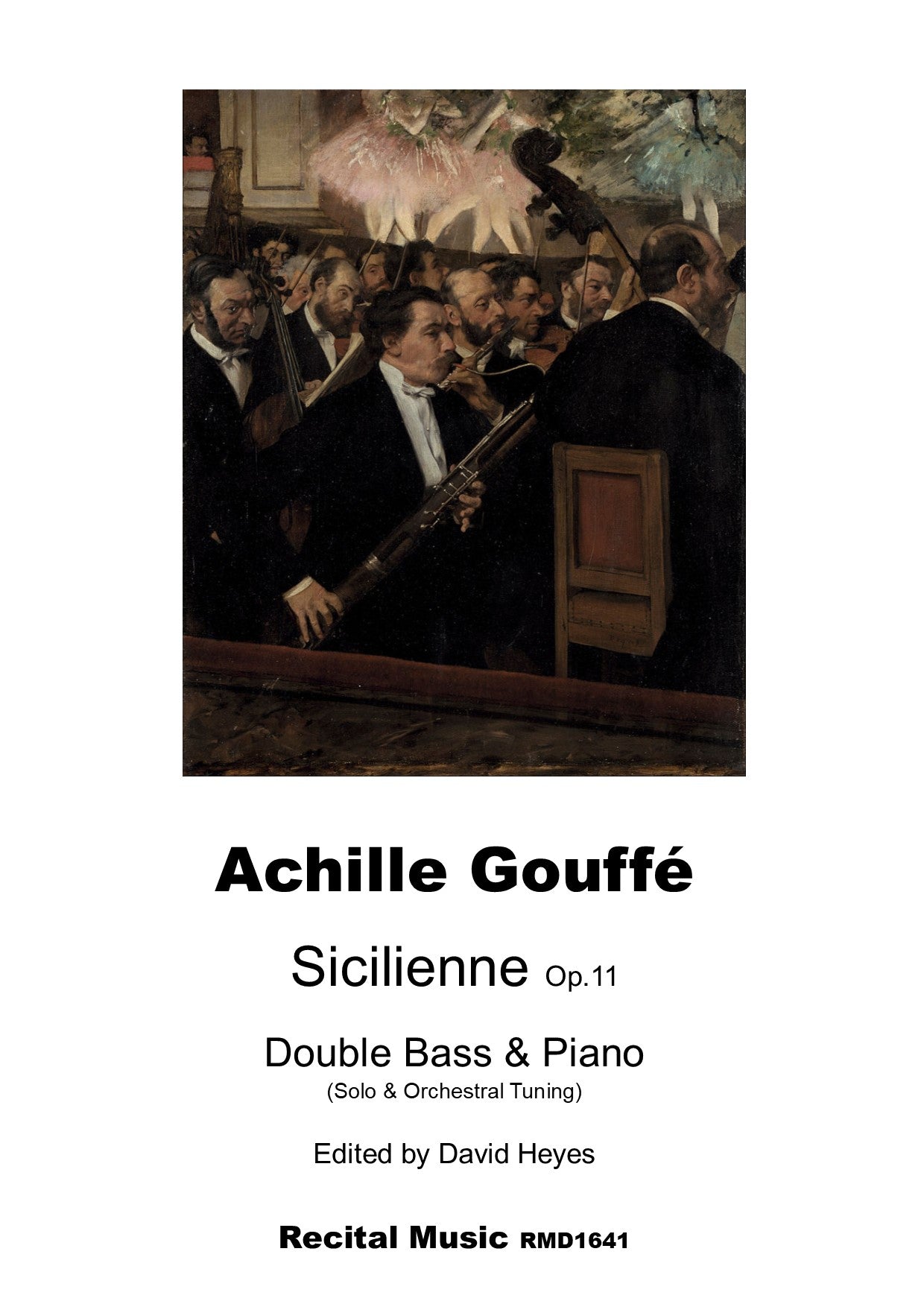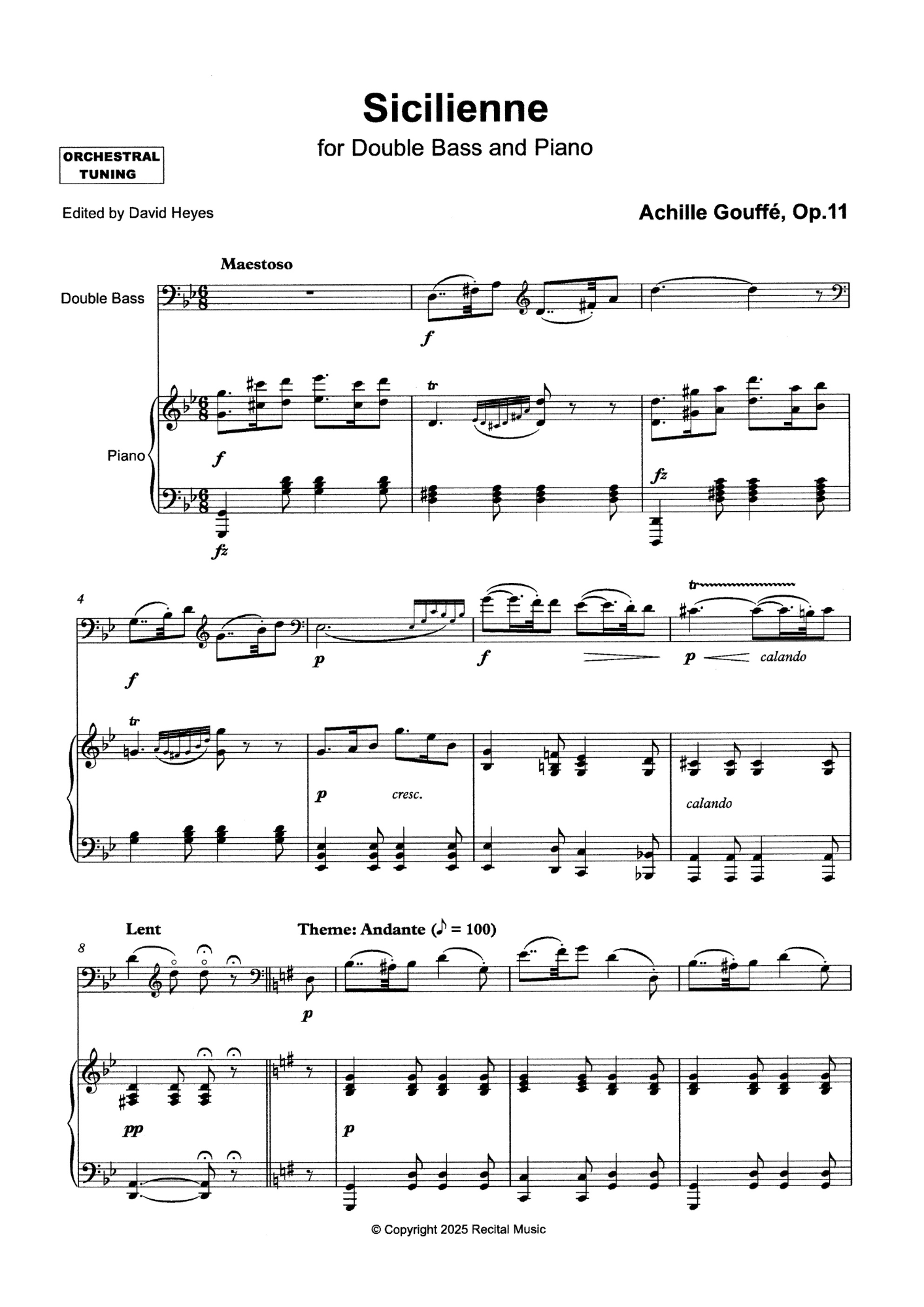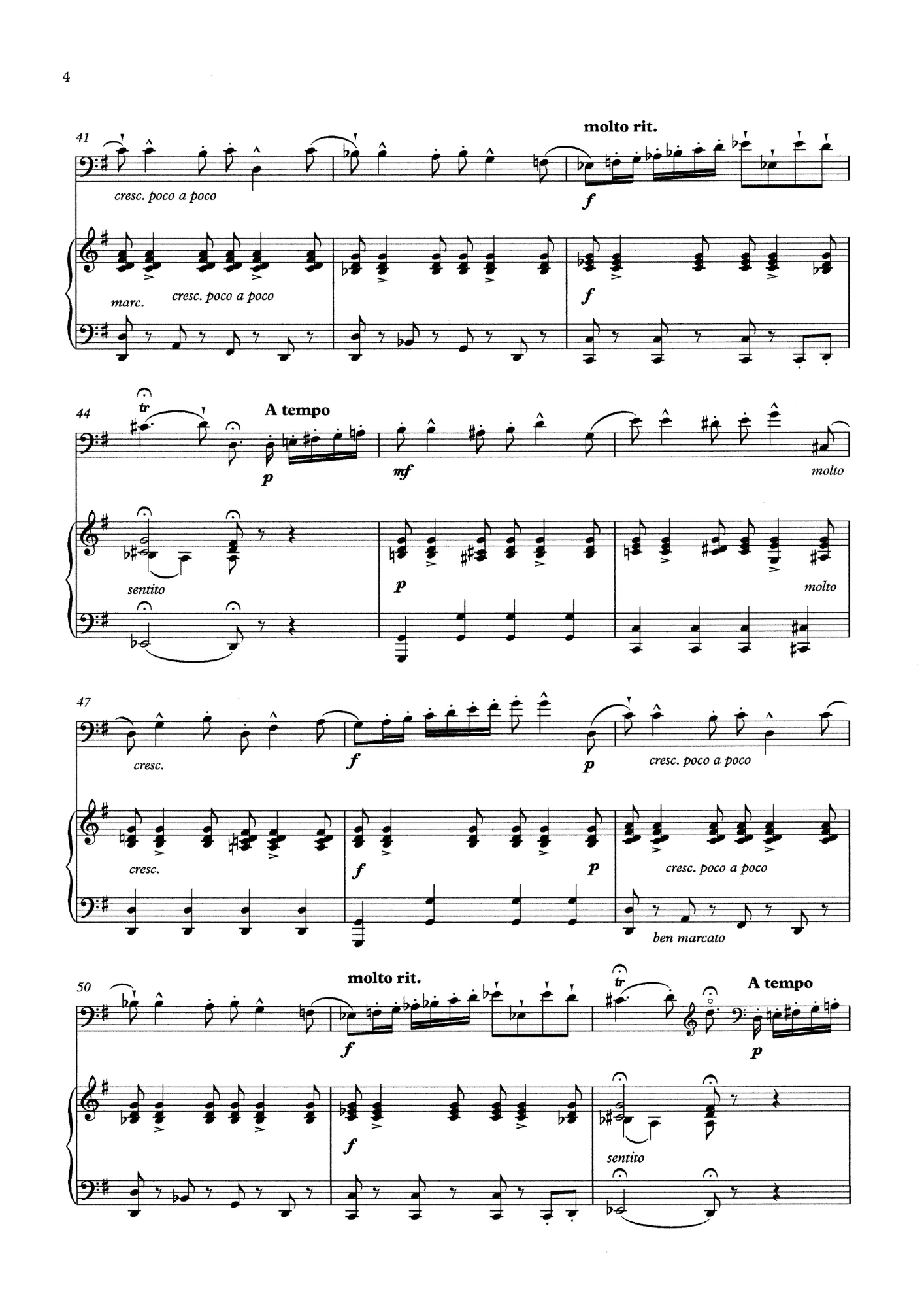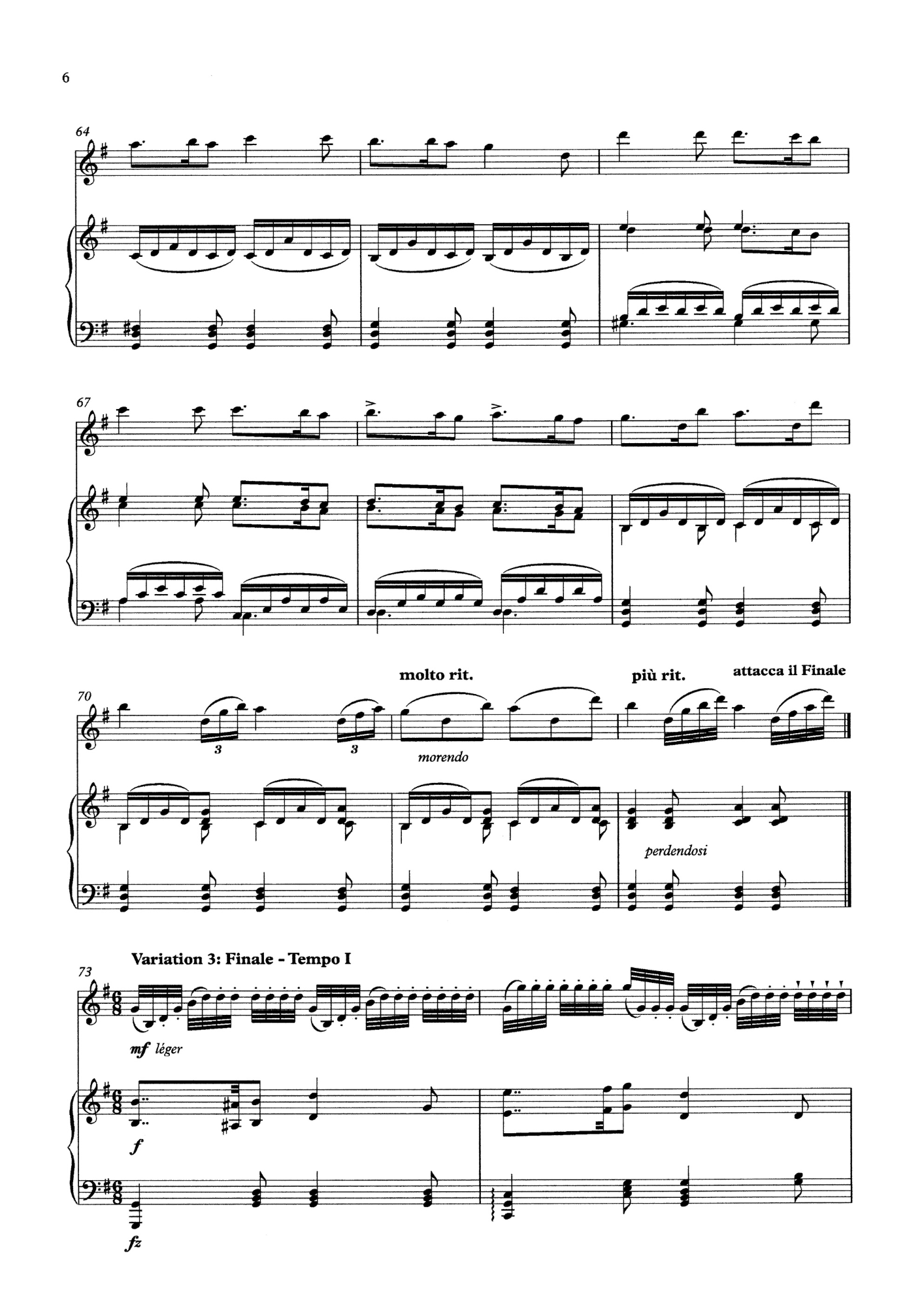David Heyes
Achille Gouffé: Sicilienne Op.11 for double bass & piano (ed. Heyes)
Achille Gouffé: Sicilienne Op.11 for double bass & piano (ed. Heyes)
Couldn't load pickup availability
About the Composition
Sicilienne is a lively and entertaining work written in the form of a theme and variations and was composed in 1855 and dedicated to ‘son ami HIPPOLYTE BROCHANT de VILLIERS’.
It would be an ideal introduction to playing easy harmonics and low thumb position for the intermediate bassist, ending with a 'Bottesini-like' arpeggio-inspired firework flourish in the finale. The style is traditional and tonal, with a lively, colourful and supportive accompaniment, and Sicilienne has been popular with adventurous students who want to venture into the 'easy' virtuoso repertoire. It successfully combines lyrical melodies with passages of a more technical and virtuosic nature, demonstrating the many possibilities and great potential of the double bass as a solo instrument.
The edition includes piano accompaniments for both solo and orchestra tunings.
About the Composer
Achille Gouffé (1804-1874) was known as the 'French Bottesini' and was an important figure in 19th-century Parisian musical life. For 35 years he was Principal Bass of the Paris Opera Orchestra and with the Society of Conservatoire Concerts Orchestra, now Orchestre de Paris, and for over 40 years he organised regular chamber music concerts at his home. Georges Onslow, Eugène Walckiers, Adolphe Blanc, amongst others, composed chamber works which included double bass for these concerts.
Gouffé was one of the first bassists in France to use a four-string double bass and, dissatisfied with the sound of the lowest string he developed, in collaboration with the violin maker Auguste Bernadel, a new process of double winding copper and steel, which was then universally adopted.
He composed a number of works for double bass, including one of the first Methods for the four-string double bass, which was subsequently adopted and used by the Paris Conservatoire. In a newspaper article in 1849 Hector Berlioz described Gouffé as a 'master virtuoso' and his educational music is still popular in France today.









